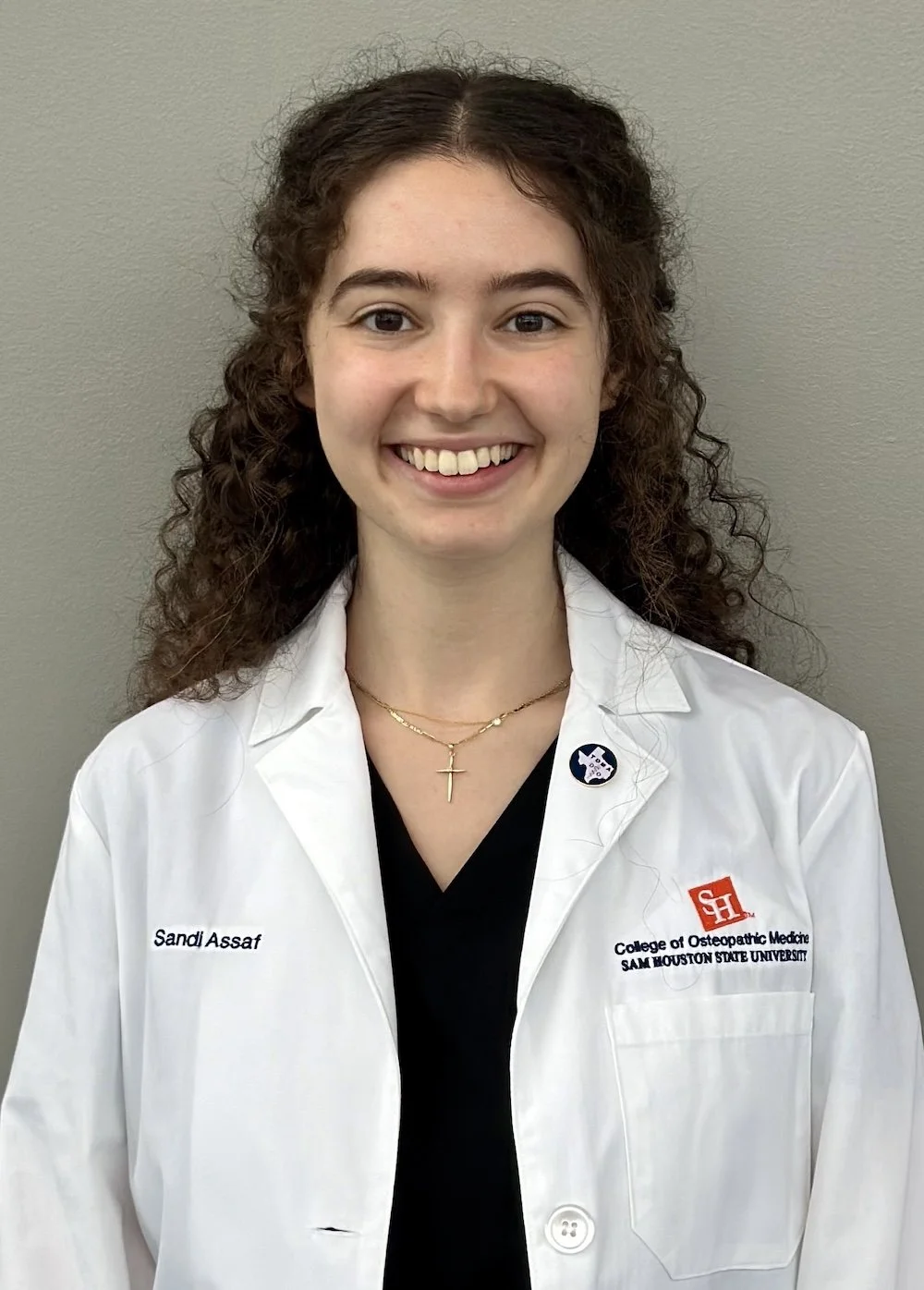Sandi A.
If you’re reading this, it’s ok to give yourself grace.
Medical school may be a person’s hardest time in their life thus far. It was for me. I never dreamed I would be studying the hours I did. In preclinicals, every day felt like an overwhelming hurdle waiting to be conquered, and yet by the end of the day, only half the day’s material had been reviewed. There were better days when studying would get finished, errands run, and extracurriculars accomplished, yet I felt disappointed that I did not get a chance to go to the gym or make a call to a friend. Times like those would call for grace—grace for the work that was accomplished, grace for the challenges overcome to get through the day. The journey of life goes by so fast, and in the moment, we often forget the struggles and sacrifices it took to get to where we are today. I can still remember the time in college when I had yet to take the MCAT, the day I got accepted to medical school, and my White Coat Ceremony. Yet, on the days when I felt overwhelmed, those memories were nowhere to be found.
Throughout medical school, the one unwavering presence was not my confidence, nor my knowledge or positivity, but my faith in God—faith that I was meant to be in the exact place that I was for a reason, maybe even several reasons unknown to me. I use this mindset to guide every interaction with my patients as a third-year medical student on rotations. When you give yourself grace—that your presence matters and that you have done so much to get to the point you are at—everything starts to fall into place.
Sandi A., Third Year Osteopathic Medical Student
Q: What is your motivation when medical training/education gets hard?
A: When I know I have a hard day ahead of me, I envision the reason why I am in medical school. I think about my parents, friends, and family who have helped me get to where I am today and who I can rely on when my medical education is difficult. I imagine everyone around me and then I think of myself after medical school, as a resident and then as an attending. I think about the changes I want to make in medicine, with research, medical innovation, and mostly with patient care. My vision of the future I am working so hard to attain fuels me for the day ahead. Although it’s important to always be present in every moment, sometimes our preoccupation with small setbacks can easily distract us from our larger mission.
Q: How do you cope with the stressors of The Match?
A: Prior to medical school, I knew very little about the Match. My first year I was overwhelmed with learning how to study best to absorb the vast amount of information. Towards the end of my first year is when I discovered my interest in dermatology, and when I learned about the Match process. Having chosen a very competitive specialty to pursue, I often feel increased pressure to constantly push myself to excel in every aspect of my medical education. However, I feel relief in knowing I have found a specialty for which I care so deeply about that I would gladly spend the rest of my life pursuing without a doubt. It allows me to push through the hard days and the long days because I have a career to which I am looking forward. The one advice I would give to all medical students who are searching for a specialty is the same advice my mom gave me when I was unsure what I wanted to be – pick the job where it's not a job and where you can look back and feel like you haven’t worked a day in your life. The confidence that I have picked the path that wakes me up in the morning with excitement helps me feel at ease to take on the Match.
Q: What advice do you have for first and second year medical students regarding mental wellness?
A: Medical school is hard and it's important to immerse yourself in learning, but it's also important to stay true to the person you are that brought you to this point. Keep doing the hobbies that make you happy with the people you love. Take that bucket list trip, cook that recipe you’ve saved, have that ice cream with your friends, and play that board game with your family. If medicine has taught me anything, life is precious and health is one of the biggest blessings in this world. As you care for patients at all stages of sickness, be grateful for the health that you’ve been given and never take it for granted.
Several studies have revealed that medical students, physicians, and healthcare professionals experience mental health symptoms at rates significantly higher than the general population. Stethos[Cope] is a chapter of IfYoureReadingThis designed to help medical students and professionals cope with the unique stressors of medical training and change the narrative of mental health in medicine.
To read more letters and interviews from students, and to learn more about mental health in the medical community, visit the Stethos[Cope] home page.

